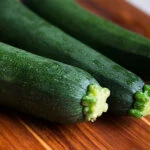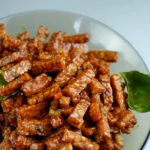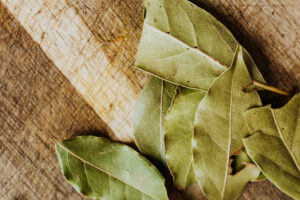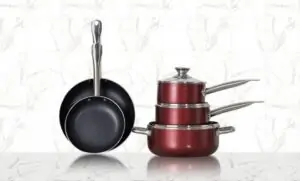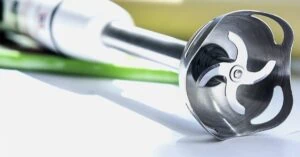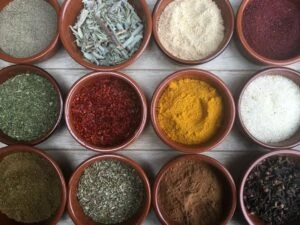The internet is unanimous — consuming a few lemon seeds won’t kill you. Are lemon seeds poisonous? Are lemon seeds toxic? They’re not, in fact eating lemon seeds has many health benefits, and lemon seeds are a source of a very important product — pectin.
Are Lemon Seeds Edible?
Lemon fruit (Citrus limon) seeds are edible, and they are an important resource for industrial pectin sold to canneries and home canners and jam makers. Plus, lemon seeds have many health benefits and should be included in some recipes that call for lemon, and they should be saved when you’re cooking, to use later.
Lemon seeds are are a giant part of citrus waste, which includes lemon pulp, lemon peel, lemon skin, crushed lemon seeds, whole seeds, and a bunch of other pieces that many of us don’t want in our sorbet or lemonade. But — when this citrus waste is converted into a resource, our climate, socio economic condition, and health are benefited.
Lemon Seeds Health Benefits
Lemon seeds contain proteins, minerals, limonoids, tocopherols, and glucoside that are beneficial to our health.
While there are heaps of lemon seeds health benefits, consuming lemon seeds regularly and by the hoards isn’t recommended, and if you swallow one and have irritable bowel syndrome, you should call your doctor. People who have stomach problems like this and eat lemon seeds, apple seeds, guava seeds, watermelon seeds, or other fruit seeds might experience digestive tract problems.
People who regularly juice citrus probably press some of those rich nutrients from the seeds into their juice. Juicing lemons and adding the fresh juice to baked goods or tea, drinking it straight, or making it into beverages are several ways to turn waste into resource, and to invite the fruit’s nutritional value to do you good.
Limonoids are phytochemicals are chemicals that taste bitter. Limonoids are especially prevalent in citrus seeds, and their bitter flavor can be the tantalizing offset to sweet, like in a salmon’s honey lemon sauce where the lemon’s juicy core wrings out its own seeds’ bitter limonoid fiasco.
Tocopherols, or vitamin E, are abundant in lemon seeds, and might be the reason why seeds are included in some recipes that use fish, vegetables, and nuts — also rich sources of vitamin E. Plus, this sunshine vitamin combines with lemons seeds’ antioxidant powers to reduce the risk of cancer and cardiovascular diseases.
Some other benefits of lemon seeds include being used to treat urinary tract infection, fungal infections like nail fungus, yeast infection, to treat eczema, relieve pain, for weight loss, to fight infectious diseases, and to conquer kidney stones.
Lemon Oil
The vitamin E and proteins found in lemon seeds are concentrated in the seeds’ oil, and can be extracted through cold-pressing the seeds. Lemon seed essential oil is used for its pleasant scent as aromatherapy for emotional health, as a hydrating topical product that supports healthy and youthful skin, and the oil even works as an antibacterial spray.
Vitamin E pulled from the seeds through oil extraction prevents oxidation and protects the body’s cells from cancerous growth, and keeps the cardiovascular system healthy.
Since cold-pressed lemon seed oil is richer in vitamin E and protein than lemon oils made through other processing methods, look for lemon seed oils that say “cold-pressed” or “virgin” on the bottle or that have this process described on the box.
Lemon Juice
Lemon seeds in their crushed form work as a natural remedy for a host of ailments, and as a deeper note in sweet foods. Use a whole lemon and squeeze its juice with a juice press, electronic juicer, or your hands without removing the seeds inside, and use as a delicious tonic to nourish skin, to maintain healthy eating practices, and as a balancer to a sweet dish.
Lemon Seed Pectin
Lemon seeds are full of natural pectin, a white-ish, powdered or granulated gelling agent. Citrus production totaled 132 million tons in 2020. The otherwise citrus waste from commercial production of citrusy things (insect repellants, spirits, juice, shampoo, tea, soda, animal feed) is re-used to make pectin, which is used commercially to thicken confectionaries like jams, jellies, and glazes, to give a clean bite and thick structure to fruit-based or acidic or milk-based beverages like yogurt, as a fat substitute in baked goods, and even to stabilize and texturize medicines and cosmetics.
It’s easy to collect pectin from citrus seeds. Make your own pectin at home by boiling lemon seeds or any citrus fruit seeds in water for a few minutes, then use the pectin-infused lemon water right away or save it in the fridge for several weeks or the freezer for several months. Use homemade pectin like you would commercial pectin to make jams and jellies.
Test your homemade pectin’s strength before you use it by stirring a spoonful into a small cup of rubbing alcohol. If the pectin thickens and spoons out on a fork in a gelled clump, its a rich source of pectin and is strong enough to thicken jam and jelly to a firm consistency. If your pectin is too thin or weak and slips through a fork’s prongs, set it to simmer for a few minutes to steam away the water and leave a more-concentrated pectin behind.
Consume Lemon Seeds
Consuming lemon seeds is beneficial to your health and helps reduce waste.
Try this mahi-mahi recipe with lemon-butter sauce, but keep the lemon trash — seeds, lemon peel and all, and slide them under the fish while it cooks for a subtle but bright aftertaste.

